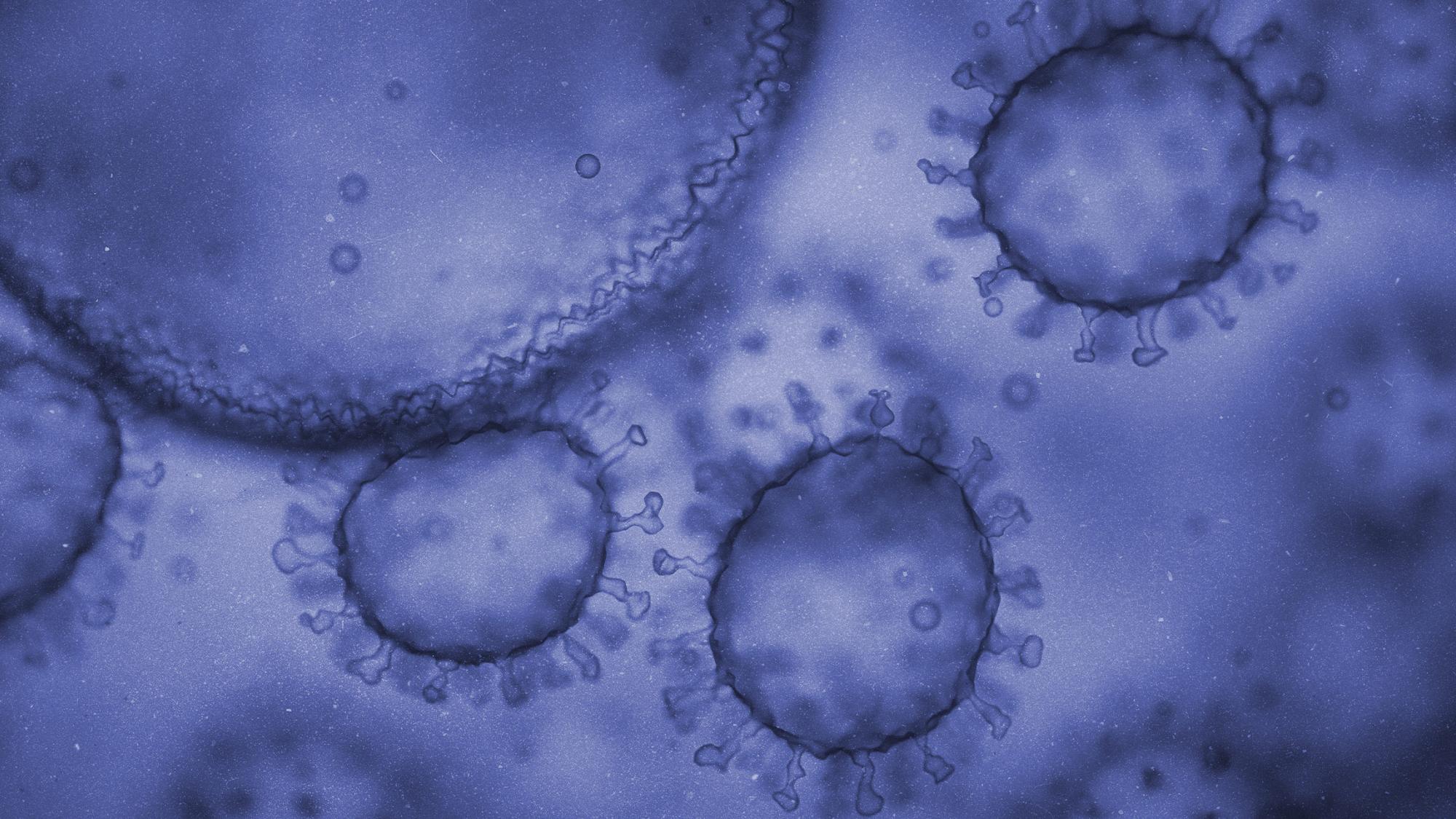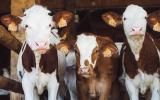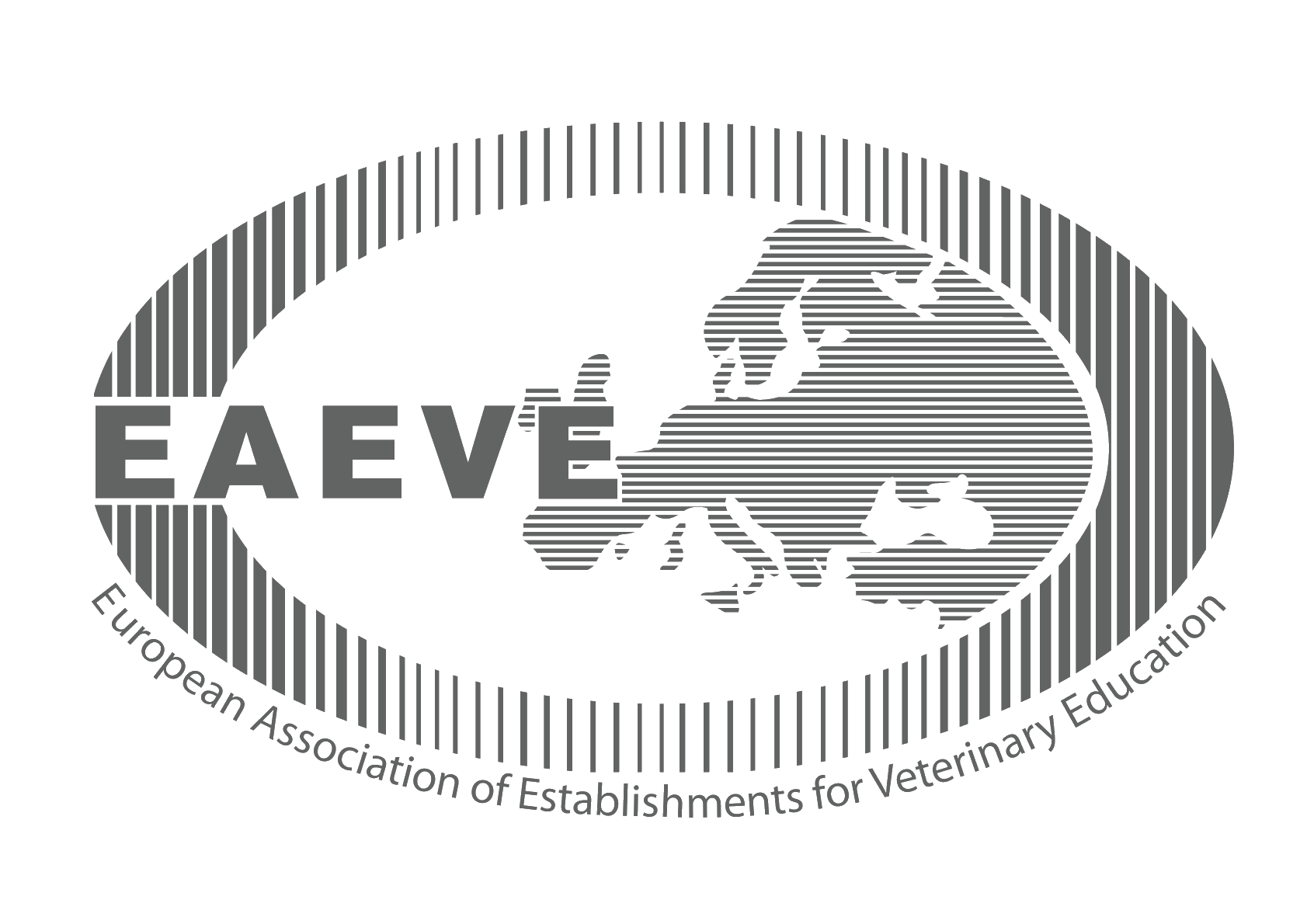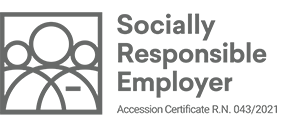Thirty-four national reference laboratories have been set up within the National Veterinary Institute (NVI).

National Reference Laboratories
Head: prof. dr. Peter Hostnik
Tel.: +386 (0)1 4779 181
This NRL deals with laboratory diagnostics (ELISA test, PCR test) of foot-and-mouth disease in cases of suspicion of this disease. The NRL participates in the preparation and updating of the national plan of measures for the outbreak of foot-and-mouth disease, the education of veterinarians and organisation of workshops, and the maintenance of clothing for the expert group in cases of suspicion of the disease. The laboratory is involved in the implementation of inter-laboratory controls under the auspices of the European Reference Laboratory, which also organises meetings of EU NRLs at which attendees learn about new developments in the epidemiology of the disease and the development of new diagnostic methods and approaches to managing the disease in the event of an outbreak.
Head: prof. dr. Peter Hostnik
Tel.: +386 (0)1 4779 181
The NRL is responsible for the development of rabies diagnostics, the harmonisation of diagnostic methods with international standards, and the serological diagnosis of rabies for the needs of movements of pets. As part of the rabies control programme, the laboratory performs monitoring of the success of fox vaccination. It works with the European Rabies Reference Laboratory to keep abreast of legislative developments, inter-laboratory controls and training of NRL experts from member states.
Head: izr. prof. dr. Ivan Toplak
Tel.: +386 (0)1 4779 180
The NRL is responsible for the development of laboratory diagnostics of classical swine fever (serological for the detection of antibodies against the virus, molecular for the detection of the viral genome, genotyping and isolation of the virus on cell culture). The laboratory is involved in the implementation of inter-laboratory controls under the auspices of the European Reference Laboratory, which also organises meetings of EU NRLs to learn about new developments in the epidemiology of the disease and the development of new diagnostic methods and approaches to managing the disease in the event of an outbreak.
Head: izr. prof. dr. Ivan Toplak
Tel.: +386 (0)1 4779 180
The NRL is responsible for the development of laboratory diagnostics for African swine fever (serological for the detection of antibodies against the virus, molecular for the detection of the viral genome and genotyping). The NRL participates in the preparation and updating of the national contingency plan for African swine fever, the training of veterinarians and the organisation of workshops, and maintenance of clothing for the expert group in cases of suspicion of an outbreak of the disease. The laboratory is involved in the implementation of inter-laboratory controls under the auspices of the European Reference Laboratory, which also organises meetings of EU NRLs to learn about new developments in the epidemiology of the disease and the development of new diagnostic methods and approaches to managing the disease in the event of an outbreak.
Head: prof. dr. Tadej Malovrh
Tel.: +386 (0)1 4779 181
The work of this NRL covers laboratory diagnostics (serological for the detection of antibodies against the virus, molecular for the detection of the viral genome) and it is integrated into the network of all NRLs in the EU. The laboratory also participates in an inter-laboratory control organised by the European Reference Laboratory for bluetongue.
Head: asist.dr. Aleksandra Grilc Fajfar
Tel.: +386 (0)1 4779 846
In collaboration with the European Reference Laboratory for Fish Diseases, this NRL develops, coordinates and implements diagnostic procedures for the detection of fish diseases that are listed in Council Directive 2006/88/EC for enzootic haematopoietic necrosis (EHN), viral haemorrhagic septicaemia (VHS), infectious haematopoietic necrosis (IHN), infectious salmon anaemia (ISA), and koi carp herpes virus (KHV). The laboratory works with the competent authorities in member states (Administration of the Republic of Slovenia for Food Safety, Veterinary Sector and Plant Protection - UVHVVR), attends annual meetings organised by the European Reference Laboratory and obtains information on the epizootiological situation of the diseases listed in the Directive.
Head: doc. dr. Mitja Gombač
Tel.: +386 (0)1 4779 155
This NRL performs pathohistological and cytologic diagnostics and polymerase chain reaction-restriction fragment length polymorphism (PCR RFLP) investigations of compulsorily notifiable parasitic diseases (marteiliosis and bonamiosis) and other diseases of molluscs, as well as testing for Vibrio aestuarianus.
Head: Kristina Tekavec
Tel.: +386 (0)1 4779 148
This NRL performs confirmatory methods for the diagnosis of animal transmissible or transmissible spongiform encephalopathies (TSEs), such as bovine spongiform encephalopathy (BSE), classical and atypical scrapie and chronic wasting disease (CWD). Diagnostic methods include rapid post-mortem tests, pathohistology, immunohistochemistry, western blot, discriminatory tests to differentiate between BSE and TSE in small cattle (primary molecular testing), and prion protein genotyping (Prnp). All diagnostic methods are performed in accordance with European regulations and the guidelines of the European Reference Laboratory for TSE. The laboratory introduces and validates new diagnostic methods, coordinates TSE diagnostics, participates in interlaboratory controls, provides a collection of samples of positive TSE cases of all types, and cooperates with UVHVVR, the European Reference Laboratory and NRLs in other countries.
Head: mag. Jasna Mičunovič
Tel.: +386 (0)1 4779 159
This NRL carries out tests for the isolation and identification of salmonella from various samples obtained through veterinary activity. It participates in inter-laboratory controls organised by the European Reference Laboratory and organises inter-laboratory controls for the laboratories of regional units. The laboratory also carries out molecular methods (PCR, PFGE, WGS) for the typification of isolates, and, through the exchange of typification data, it collaborates in investigating outbreaks of human salmonella. The NRL also maintains a collection of salmonella isolates and reference strains.
Head: doc. dr. Irena Zdovc
Tel.: +386 (0)1 4779 159
This NRL carries out tests for the isolation and identification of L. monocytogenes from various samples obtained in the veterinary field. It participates in inter-laboratory controls organiaed by the European Reference Laboratory for L. monocytogenes and organises inter-laboratory controls for the laboratories of regional units. The laboratory also carries out molecular methods (PCR, PFGE, WGS) for typification of isolates, and, by sharing typing data, collaborates in investigating outbreaks of listeriosis in humans.
Head: znan. sod. dr. Igor Gruntar
Tel.: +386 (0)1 4779 159
This NRL provides the highest level of diagnosis of campylobacteriosis and maintains the appropriate preparedness of the designated laboratories. It introduces and validates new methods, and prepares, maintains and provides reference materials and reagents for performing tests. The laboratory cooperates with the European Reference Laboratory, provides expert information to the competent authorities and other interested organisations, and coordinates the activities of designated laboratories in the country.
Head: doc. dr. Irena Zdovc
Tel.: +386 (0)1 4779 159
This NRL carries out analyses of official samples in relation to the resistance of bacteria in the veterinary field. The laboratory is using the microdilution method for the detection of minimum inhibitory concentration (MIC) - the official reference method established by the European Reference Laboratory. It provides scientific and professional support to the UVHVVR, collaborates in the development of the national ‘One Health’ strategy for microbial resistance management, and in the national commission for the sensible use of antimicrobials.
Head: dr. Majda Biasizzo
Tel.: +386 (0)1 4779 192
This NRL determines the presence and degree of contamination of food chain samples with E. coli in accordance with ISO 16649-2 and ISO 16649-3, and the presence of VTEC/STEC using a method according to ISO/TS 13136. The presence of other pathogens of E. coli is determined using the PCR method to detect the presence of individual genes that determine the pathogenic properties of bacteria (e.g. toxin excretion). The laboratory uses modern molecular methods (PFGE, WGS) for scientific and epidemiological research and is part of the network of European laboratories in the field coordinated by the European Reference Laboratory.
Head: viš. znan. sod. dr. Brane Krt
Tel.: +386 (0)1 4779 159
This NRL deals with the reference diagnostics of infections of domestic animals with brucellosis (mainly B. abortus, B. melitensis, B. suis, B. dependent and B. canis). This includes serological (SA, RVK and ELISA), bacteriological (isolation and classical determination) and molecular methods (PCR, qPCR). The laboratory provides professional support for NVI area unit laboratories, veterinarians, and the UVHVVR. At the request of the European Reference Laboratory, it introduces new diagnostic methods and participates in the testing and validation of new standard reagents (reference sera). The NRL also maintains a collection of field brucella isolates, reference strains and standard materials.
Head |
doc. dr. Stanka Vadnjal | |
|
|
stanka.vadnjal@vf.uni-lj.si | |
Phone |
01 4779 837 |
Head: dr. Janez Posedi
Tel.: +386 (0)1 4779 162
This NRL is primarily concerned with the detection of the larvae of Trichinella spp. in muscular tissue using the digestive method, through post-mortem determination of the developmental shape of the tapeworm of the genus Echinococcus spp. (echinococcus or cestoda) in various organs of the intermediate host and by identifying the larvae of the L3 Anisakidae in fish.
Head: Brigita Slavec
Tel.: +386 (0)1 4779 245
This NRL is the only designated and authorized laboratory in Slovenia that performs diagnostics of avian influenza (AI). Its mission is to perform diagnostics of AI, develop and deploy new ones, and maintain the already implemented diagnostic methods recommended by the European Reference Laboratory. The laboratory checks the quality of its work by participating in interlaboratory controls organised by the European Reference Laboratory and in which designated laboratories of member states and some non-EU member states are involved. The NRL regularly monitors the incidence of AI in Europe and the world, ensures disease preparedness in the event of an outbreak, and provides information about AI to the professional and general public.
Head: Uroš Krapež
Tel.: +386 (0)1 4779 245
This NRL performs cutting-edge diagnostic tests for Newcastle disease. The quality of its work is regularly compared with that of other NRLs at professional meetings and in inter-laboratory controls. The laboratory provides expert advice and education in the field of Newcastle disease and participates in the organisation of inspections and epidemiological studies of Newcastle disease.
Head: Igor Ujčič Vrhovnik
Tel.: +386 (0)1 4779 237
In the prevention of animal transmissible spongiform encephalopathies (TSE, e.g. BSE), effective control of the possible tissue content of animal origin in feed is very important. This NRL determines their presence in feed and identifies them. It works closely with the European Reference Laboratory and the national reference laboratories of other member states.
Head: Janja Babič
Tel.: +386 (0)1 4779 233
This NRL performs analytical procedures to determine aflatoxins, zearalenone, ochratoxin A, fumonisins, deoxynivalenol, and toxins T-2 and HT-2 in feed. The laboratory works with the European Union Reference Laboratory for mycotoxins and plant toxins and member states' national reference laboratories.
Head: Andrej Kirbiš
Tel.: +386 (0)1 4779 192
This NRL monitors the presence of those groups of marine toxins that cause mental and neurological or gastrointestinal disorders. The first group includes domoic acid and its analogues (amnesic shellfish poisoning - ASP) and even more dangerous saxitoxins (paralytic shellfish poisoning - PSP). The second group contains okadaic acid and its analogues.
Head: Katarina Pavšič Vrtač
Tel.: +386 (0)1 4779 233
This NRL carries out analytical procedures for the determination of metals and other elements in feed and food of animal origin. It works with the European Union Reference Laboratory for Heavy Metals and Nitrogenous Compounds in Feed and Food (EURL-MN) and member states' national reference laboratories.
Head: Jožica Dolenc
Tel.: +386 (0)1 4779 192
This NRL deals with the detection of the presence of illicit substances (stilbene, steroid hormones, zeranols, chloramphenicol, metabolites of nitrofuran, nitroimidazoles, dapsone, chlorpromazine, beta-agonists) and the concentrations of possible residues of different groups of antimicrobials, avermectin and anti-coccididate, coccidiocytes (NSAIDs) in foods of animal origin. Among the pollutants, the laboratory focuses on lead, cadmium, mycotoxins and colourants. It tests meat, milk, eggs, liver, kidneys, honey, urine and blood plasma.
Head: Matjaž Ocepek
Tel.: +386 (0)1 4779 159
This NRL performs reference diagnostics of bovine tuberculosis infections, including bacteriological (isolation, morphology) and molecular methods (PCR, qPCR). The laboratory provides professional support for veterinary practitioners and the UVHVVR. At the request of the European Reference Laboratory for Bovine Tuberculosis, the laboratory introduces new diagnostic approaches and tests and validates new methods. It also maintains a collection of clinical mycobacterial isolates and reference strains.
Head: Gabrijela Tavčar Kalcher
Tel.: +386 (0)1 4779 237
Additives added to feed to improve livestock production, production and animal welfare should not be placed on the market without the permission of the European Commission. This authorisation is granted once it is established that the additive has no adverse effects on human and animal health and the environment. The European Food Safety Authority (EFSA) is responsible for carrying out assessments. Assessments of the analytical methods proposed by the feed additive manufacturer for official controls are carried out by the European Union Reference Laboratory for Feed Additives. Through their comments and advice, member states' national reference laboratories participate in the production of reports on the adequacy of the proposed methods of analysis and may be authorised by the European Reference Laboratory to produce reports. The NRL also implements analytical methods for determining feed additives (vitamins, coccidiostats, elements ...).
Head: Tadej Malovrh
Tel.: +386 (0)1 4779 181
This NRL is engaged in cutting-edge laboratory diagnostics (direct demonstration of pathogens or demonstration of specific immune response products) of several viral, bacterial and parasitic diseases in horses. In the field of viral diseases, the laboratory diagnoses West Nile diseases, viral equine arteritis, equine rhinopneumonitis, vesicular stomatitis and infectious equine anaemia. Diagnosis for contagious metritis of mares (CEM), and glanders is performed for bacterial diseases, while in terms of parasitic diseases, diagnosis of African horse sickness (dourine) is made. The laboratory is part of the network of all NRLs for equine diseases in the EU and participates in an inter-laboratory control organised by the European Reference Laboratory for specific diseases.
Head: Metka Pislak Ocepek
Tel.: +386 (0)1 4779 146
This NRL covers the health problems of bees. It has introduced a number of modern diagnostic methods for viral, bacterial, parasitic and fungal diseases, as well as bee pests. In accordance with the protocols of the European Reference Laboratory, the NRL develops and implements new methods, provides reference materials, prepares educational materials for beekeepers and provides expert support to the UVHVVR and the Ministry of Agriculture, Forestry and Fisheries (MAFF). The laboratory monitors the spread of new non-native pathogens and bee pests, such as tropilelosis, small hive beetle and Asian beetle, and is trained to identify and diagnose these pathogens. It participates in inter-laboratory controls and regularly attends annual meetings and training sessions organised by the European Reference Laboratory.
Head: Danijela Rihtarič
Tel.: +386 (0)1 4779 181
This NRL carries out serologic diagnostics to detect antibodies and molecular diagnostics for viral nucleic acid. Since 2016 it has been participating in interlaboratory testing organised by the European Reference Laboratory.
Head: Urška Kuhar
Tel.: +386 (0)1 4779 181
This NRL is part of the NRL Network for Nodular Dermatitis in the EU and participates in an inter-laboratory control (ELISA test for antibodies and PCR and sequencing to prove the pathogen) organised by the European Reference Laboratory. It also uses molecular methods to distinguish between vaccine and wild-type viruses.
Head: Zlatka Bajc
Tel.: +386 (0)1 4779 192
This NRL carries out analyses of the water content of poultry meat. Fresh, frozen and quick-frozen cuts of poultry and frozen and quick-frozen chickens may only be marketed in the European Union if the water content does not exceed technically unavoidable values. Too much water can be absorbed due to irregularities in slaughtering, cooling or freezing. However, water may be intentionally added, which is not allowed, since in this case consumers are misled.
Head: Urška Jamnikar Ciglenečki
Tel.: +386 (0)1 4779 829




